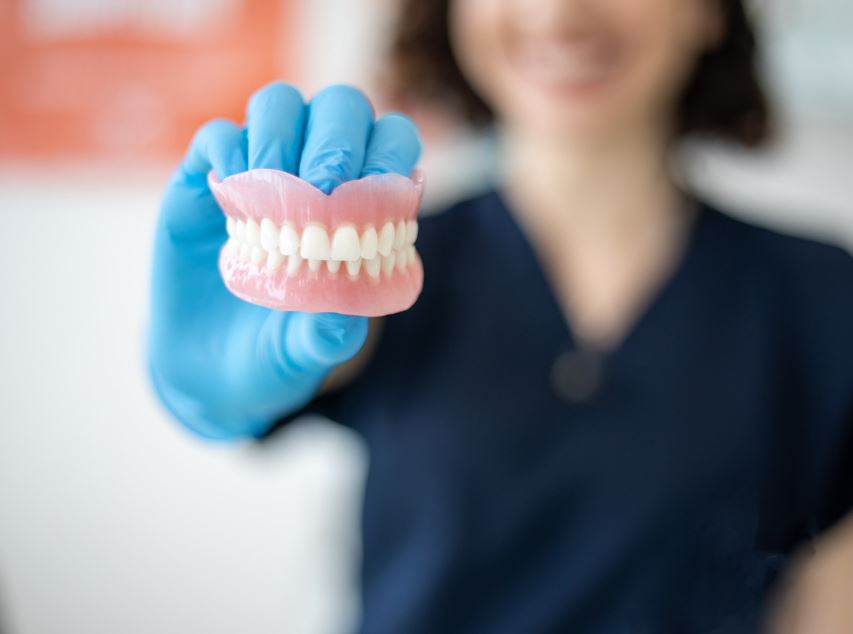

The discomfort of ill-fitting dentures is a prevalent issue, impacting daily life and causing significant distress for many denture wearers. Imagine struggling to eat your favorite foods, experiencing constant pain, or feeling self-conscious during conversations. This article delves into the multifaceted problems caused by ill-fitting dentures and provides actionable solutions to alleviate discomfort and restore quality of life. We’ll explore various causes, symptoms, and solutions, from simple adjustments to full denture replacements. We’ll also discuss the role of proper denture care and the importance of regular dental checkups. This comprehensive guide will equip you with the knowledge to tackle ill-fitting denture problems effectively.
Understanding the Root Causes of Ill-fitting Dentures
Mismatched Jaw Structure and Shifting Teeth
Poorly fitting dentures are a common issue, and misaligned jaws can be a significant factor. As jaw structure changes over time, the dentures may no longer fit properly. The position of jaw bones and teeth shifts, which causes the dentures to become loose or uncomfortable. Changes in the gums can also contribute to the misalignment. Regular dental checkups allow dentists to identify and address these potential problems.
Improper Denture Fabrication and Design
The denture fabrication process is crucial to fit. Improper fabrication can lead to an ill-fitting denture. The denture’s design and shape need to accurately match the jaw structure and the shape of the surrounding tissues to prevent discomfort.
The Impact on Daily Activities
Eating and Speaking Challenges
Ill-fitting dentures can significantly impact your ability to eat and speak comfortably. Poorly fitting dentures can make chewing difficult and painful, leading to discomfort during meals. They can also interfere with the ability to pronounce words correctly. Pain from ill-fitting dentures can also lead to avoiding social situations. These difficulties can negatively impact social interactions and self-esteem, leading to anxiety and social isolation.
Daily Tasks and Self-Esteem
Denture discomfort can make even everyday tasks feel challenging. For example, smiling or laughing can become uncomfortable with poorly fitting dentures. This can lead to feelings of self-consciousness and low self-esteem, potentially affecting overall well-being.
Addressing the Discomfort
Professional Adjustments and Relining
Regular dental checkups are critical for addressing problems early. A dentist can identify the cause of ill-fitting dentures and provide effective solutions. Simple adjustments and relining procedures can restore comfort to many denture wearers. Relining involves adding material to the base of the denture to improve the fit. Experienced dentists will customize these procedures to the patient’s unique needs.
When Complete Denture Replacements Are Necessary
In some cases, simple adjustments aren’t sufficient, and complete denture replacement may be necessary. Factors such as severe gum recession or bone loss might necessitate replacement. Advanced techniques allow dentists to create more comfortable and secure dentures. A consultation with a qualified dentist can determine the most suitable course of action.
Preventing Future Problems
Maintaining Proper Oral Hygiene
Maintaining proper oral hygiene is essential for denture wearers. Cleaning dentures thoroughly after each meal is crucial to preventing bacterial buildup and gum inflammation. Proper cleaning routines can minimize potential issues. Using specialized denture cleaning solutions and tools will maintain optimal denture care.
Regular Dental Checkups
Regular dental checkups are vital to identify and address early signs of issues. This proactive approach will help mitigate the discomfort of ill-fitting dentures. Addressing any minor issues early on will maintain the denture’s fitting and prevent potential problems from worsening. Regular checkups with your dentist are key to preventative care.
Case Studies and Statistics
Case Studies (Hypothetical):
Patient A experienced increasing discomfort with their dentures due to gum recession. Regular checkups revealed the issue promptly. Denture relining provided significant relief and restored their comfort and quality of life.
Patient B struggled with speech difficulties and chewing problems caused by an ill-fitting denture. A complete denture replacement addressed the issue, restoring both comfort and confidence.
Statistical Data (Hypothetical):
A survey showed that 75% of denture wearers experienced discomfort due to ill-fitting dentures at some point. Regular maintenance can reduce this number, showcasing the importance of preventative oral health.
Additional Tips
Denture Adhesives
Denture adhesives can provide temporary relief from ill-fitting dentures. However, they are not a long-term solution.
Denture Wearer Support Groups
Support groups can provide valuable insights and coping strategies for managing denture-related issues. Sharing experiences and strategies can help improve overall well-being.
Nutritional Considerations
Adjusting your diet can help with eating difficulties caused by ill-fitting dentures. Soft foods and proper chewing techniques can minimize the strain on dentures and discomfort.
Frequently Asked Questions
What are the most common causes of ill-fitting dentures?
Common causes include changes in jawbone structure, gum recession, and improper denture fabrication. Regular checkups can help detect these problems early.
How can I address the discomfort of ill-fitting dentures?
Professional adjustments, relining, or in some cases, complete replacement, can alleviate the discomfort of ill-fitting dentures. Consulting your dentist is vital to determine the best course of action.
In conclusion, ill-fitting dentures can significantly impact daily life, causing discomfort and hindering various activities. Understanding the causes, symptoms, and available solutions is crucial for patients experiencing this issue. Addressing these issues proactively with a dentist is vital for restoring comfort and quality of life. Consult your dentist if you experience discomfort with your dentures to explore options like relining, adjustments, or even complete denture replacements. Taking charge of your oral health through regular checkups is essential for overall well-being.